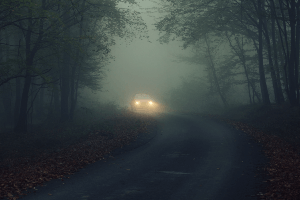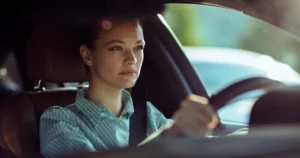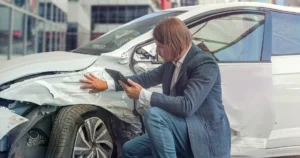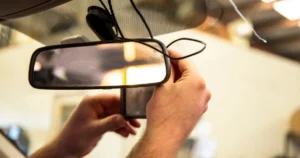 Driving when visibility is poor can be dangerous. According to the U.S. Department of Transportation, over 600 people are killed in accidents due to low visibility.
Driving when visibility is poor can be dangerous. According to the U.S. Department of Transportation, over 600 people are killed in accidents due to low visibility.
If you were injured in a crash due to poor visibility, call our South Bend-area car crash lawyers today to discuss your claim. We offer a free consultation to see what legal options may be available to you. There are also no fees while we work on your case.
Below, we discuss what causes low visibility conditions and how liability for these crashes is determined.
What Commonly Affects Visibility?
All manner of natural and man-made conditions can affect visibility. Some of the most common natural causes of low visibility include the following:
- Snow
- Fog
- Sleet
- Heavy rain
- Hail
- Snowstorms
- Low light
- Glare
Visibility may also get obstructed by man-made conditions such as the following:
- Failure to contain a work zone – things like dustups from a construction site or construction equipment on the roadway.
- Failure to trim landscaping – trees, hedges, bushes and other overgrown plants that block a driver’s view of intersections or traffic signs.
- Failure to remove obstructive structures from the road – when new roads or structures are built, they must not obscure visibility for drivers passing through the area.
How is Liability for a Low Visibility Accident Determined?
Liability for an accident in low visibility conditions comes down to which driver acted negligently. There are generally two major factors to consider.
Does Duty of Care Still Apply?
Yes, drivers still owe a duty of care to others even when visibility is poor. In fact, a driver has a greater responsibility to take additional precautions specifically because he or she may not be able to see as well.
It is difficult to anticipate when your visibility gets reduced. For instance, weather conditions may change while you are driving. You could also approach an active construction site and have to deal with an unexpected dustup. Even if these conditions were not anticipated, this does not excuse a driver who acts recklessly.
If the low visibility conditions are due to weather, the driver is expected to:
- Slow down
- Turn on headlights/fog lights
- Allow additional space between vehicles
When there are low visibility conditions caused by dustups from a construction site, drivers may be expected to follow the signs posted in the construction zone. Drivers should also take additional measures to check roadways carefully before proceeding if there is an obstruction on the road limiting visibility.
Drivers who fail to take these additional precautions and cause an accident may be liable for damages.
Was a Third Party Responsible?
If the reason for low or obstructed visibility is due to the actions of a third party, liability may also fall on that party. For example, if a construction company fails to secure a work zone and a dustup causes an accident, the company may be liable for damages.
If there is a commercial truck blocking a driver’s view at an intersection, then the commercial truck driver or company may also be liable for damages.
These types of cases may be difficult to prove, though, so it may be in your best interest to work with an attorney.
Filing a Claim for a Low Visibility Crash
If you were injured in a crash due to low visibility, you may be able to recover compensation for your damages. Still, must be able to prove the negligent actions of another party resulted in those damages.
If your injuries are due to a negligent driver, then you may file a third-party claim with the driver’s liability insurance company. You will need to gather evidence to help prove the other driver’s negligence, such as if he or she was speeding or following too closely.
For accidents caused by the negligence of a third party, you may be eligible to pursue compensation from that party’s liability insurance as well. You also need evidence to prove the third party’s negligence.
Our knowledgeable attorneys can investigate your claim, gather evidence to build a strong case and negotiate with the insurance company. If the insurance company refuses to cooperate, we are prepared to sue.
Call Us Today
At Pfeifer, Morgan & Stesiak, our attorneys have decades of experience helping accident victims. We do not charge any upfront fees. You do not pay us anything until we successfully recover compensation for you.
There is no obligation to hire us after your initial confidential consultation.
No upfront fees. No risks. Call (574) 444-0741 today.












